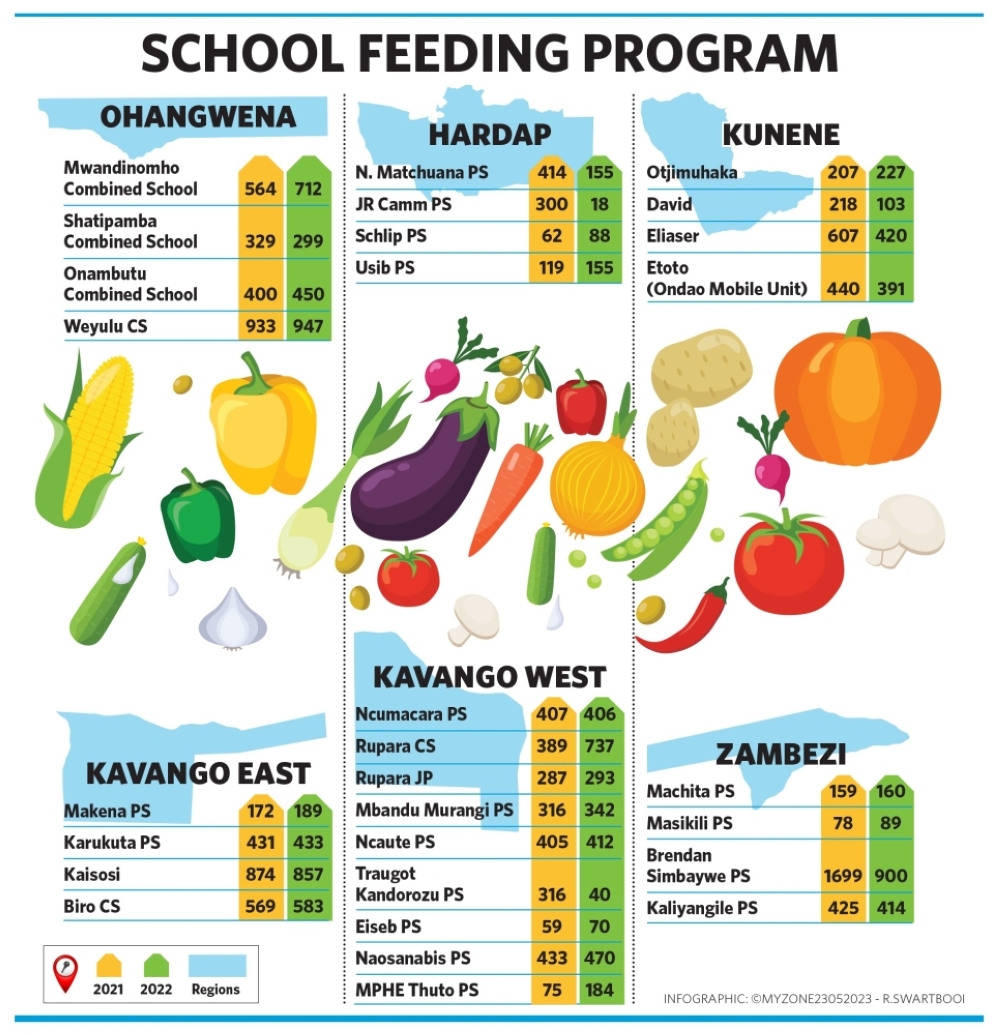Education ministry dedicated to alleviating hunger
N$5m allocated to school feeding programme
The ministry of education, arts and culture - in partnership with United Nations and the World Food Programme - has committed to feed learners from over 29 schools. The schools are located in seven regions across the country, namely Zambezi, Kavango East, Kavango West, Kunene, Omaheke, Ohangwena and Hardap. Other regions are still pending on the rollout of the Home Grown School Feeding Programme (HGSFP).In addition to the programme running at schools, small-scale farmers will be trained in all 14 regions. Furthermore, extension officers will be deployed into the regions to raise awareness at regional offices to support food production on a local level for small- and medium-scale farmers.
According to ministry executive director Sanet Steenkamp, once fully implemented, the positive outcomes of the project are the following: “Healthy learners and minimised sickness and absenteeism; improved learner performance; income for small-scale farmers by creating a market for their produce, and subsequently reducing poverty amongst community members".
A representative from Schlip Primary School in the Hardap Region, Claudine Kharas, shared the progress of the school's garden. According to her, support for the programme mostly comes from parents of learners, and the programme allows the school to support all learners at the school. Numbers received from the ministry indicate that the beneficiaries in 2022 totalled 88 learners, which increased from 62 in 2021.
“It really helps the absenteeism rates in the school," Kharas said.
Meanwhile, Namibia Wildlife Resorts (NWR) recently launched its own project to assist impoverished schools. It donated equipment to 14 schools identified in seven regions. The equipment will cost the company around N$500 00. NWR launched the project at Oshekasheka Combined School in the Oshana Region. The school received the donation to the tune of N$20 000. Communications officer Nelson Ashipala said that NWR cares for the environment and the project is a part of its corporate social investment. “Food security is very important. Many learners in schools are not focusing due to the lack of a balanced meal,” he said. He further stated that their hopes for the project are that it will assist schools to independently generate funds.




Comments
My Zone
No comments have been left on this article